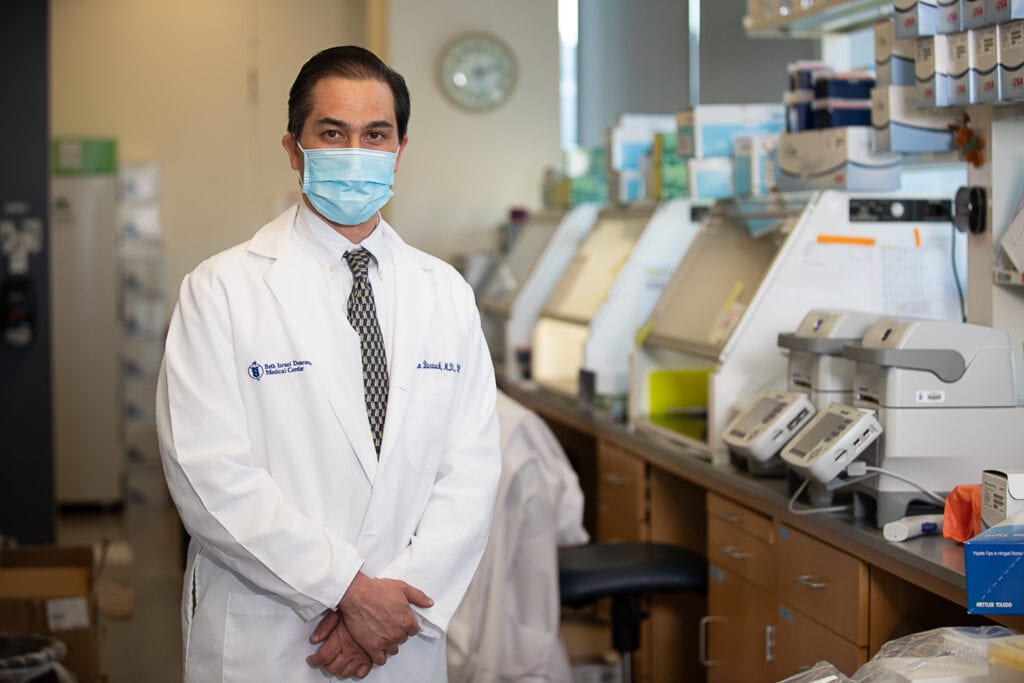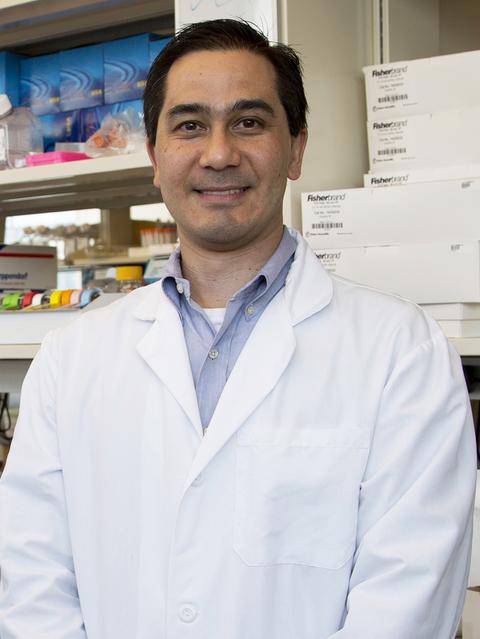Elon Musk’s foundation gives $5M to Beth Israel Lahey Health’s Barouch, Ragon Institute
Boston Business Journal – January 19, 2021
The Musk Foundation has given a $5 million gift to Dan Barouch, MD, PhD (Center for Virology and Vaccine Research, BIDMC) and Dr. Galit Alter, a professor in medicine at the Ragon Institute, to study the fundamental inner-workings to the novel coronavirus as well as two yet-to-be-decided diseases.

Two Boston researchers credited with creating a coronavirus vaccine and a coronavirus diagnostic tool will launch a new project to understand the inner workings of the disease, thanks to a $5 million gift from Elon Musk’s charitable foundation.
The Musk Foundation will provide the gift to both Dr. Dan Barouch, director of the Center for Virology and Vaccine Research at Beth Israel Deaconess Medical Center and a member of the Ragon Institute of MGH, MIT and Harvard, as well as to Dr. Galit Alter, a professor in medicine at the Ragon Institute. With the funding, the researchers will study the fundamental innerworkings to the novel coronavirus as well as two yet-to-be-decided diseases.
“Applying these techniques to human disease will give us substantial insights into how disease processes work, how immune response works, and how we can treat and cure diseases,” Barouch said.
Musk’s interest in understanding the complex inner workings of the immune system came just as he was looking to understand the vast world of space. Alter said she had been working with Musk’s company SpaceX since earlier in 2020, using an assay she had developed to help the rocket company test its employees for coronavirus antibodies.
Identifying which employees might have antibodies — and subsequently the virus — was critical, as SpaceX planned a rocket launch in May. Musk soon reached out to Alter and her Harvard colleagues to understand better how antibodies work.
“It was so cool to see someone so focused on revolutionizing the world interested in how we fight itty-bitty viruses,” Alter said.

Photo courtesy of Beth Israel Deaconess Medical Center
When Musk wanted to know more about vaccine development, Alter brought in her close colleague Barouch, who was doing work with Johnson & Johnson to develop one of several vaccines to the novel coronavirus.
After several conversations, Musk told the team he was interested in funding something within the coronavirus space, prompting the pair to submit several proposals to the Musk Foundation.
The funding award will not only give each researcher $2.5 million for their work, but will allow them to pursue how coronavirus and two other diseases interact with the immune system on a broader and deeper level.
Usually, scientists have a hypothesis, and have specific grants to help them prove or disprove them. But with funding from the Musk Foundation, Alter and Barouch will be able to do an open-ended exploration of these three diseases. Using machine learning on large datasets, and analyzing the molecular fingerprints the disease leaves in the body, the researchers hope to better understand how the diseases evade detection within the body, and to devise new ways to engineer the immune system to prevent or cure disease.
Beyond coronavirus, the pair will focus on a cancer as well as another infectious disease.
“The big thing we saw that changed the game for vaccine development and biological innovation for this pandemic has been this huge influx of funding that helped do stuff super fast,” Alter said. “What we’re hoping to do is use this funding from the Musk Foundation to prove that the same kind of infusion of money into three disease areas could move the science faster than we could ever expect traditional funding mechanisms to push.”
Dr. Bruce Walker, founding director of the Ragon Institute of MGH, MIT and Harvard, credited this kind of flexible philanthropic funding with being the gateway to scientific breakthroughs, and said the basic scientific understanding of disease is the foundation for treatment breakthroughs.
“Understanding how to modify those vaccines to get the desired kinds of protective immunity, doing fundamental work to understand what makes immune targeting of certain parts of the virus more vulnerable — those are basic aspects that have a big bearing on how you go about developing an end product,” Walker said. “That’s what we’re trying to do — go from the basics of how a T cell or antibody is generated, to figuring out how to tweak that in the direction most likely to be effective.”
Peter Healy, president of Beth Israel Deaconess Medical Center, applauded the funding for supporting the hospital’s research work.
“BIDMC is extremely proud of our world-renowned research programs, including the incredible efforts of Dr. Barouch and his team to combat our current global public-health crisis,” Healy said. “We greatly appreciate the Musk Foundation in supporting these scientists and their critical work.”
Such giving from Musk and the Musk Foundation may be accelerated in the years ahead. Musk signed a pledge last year promising to give away half of his fortune, and was recently named the richest person in the world. In a tweet this month, Musk said he was seeking advice on how to give away his fortune.
Btw, critical feedback is always super appreciated, as well as ways to donate money that really make a difference (way harder than it seems)— Elon Musk (@elonmusk) January 8, 2021

